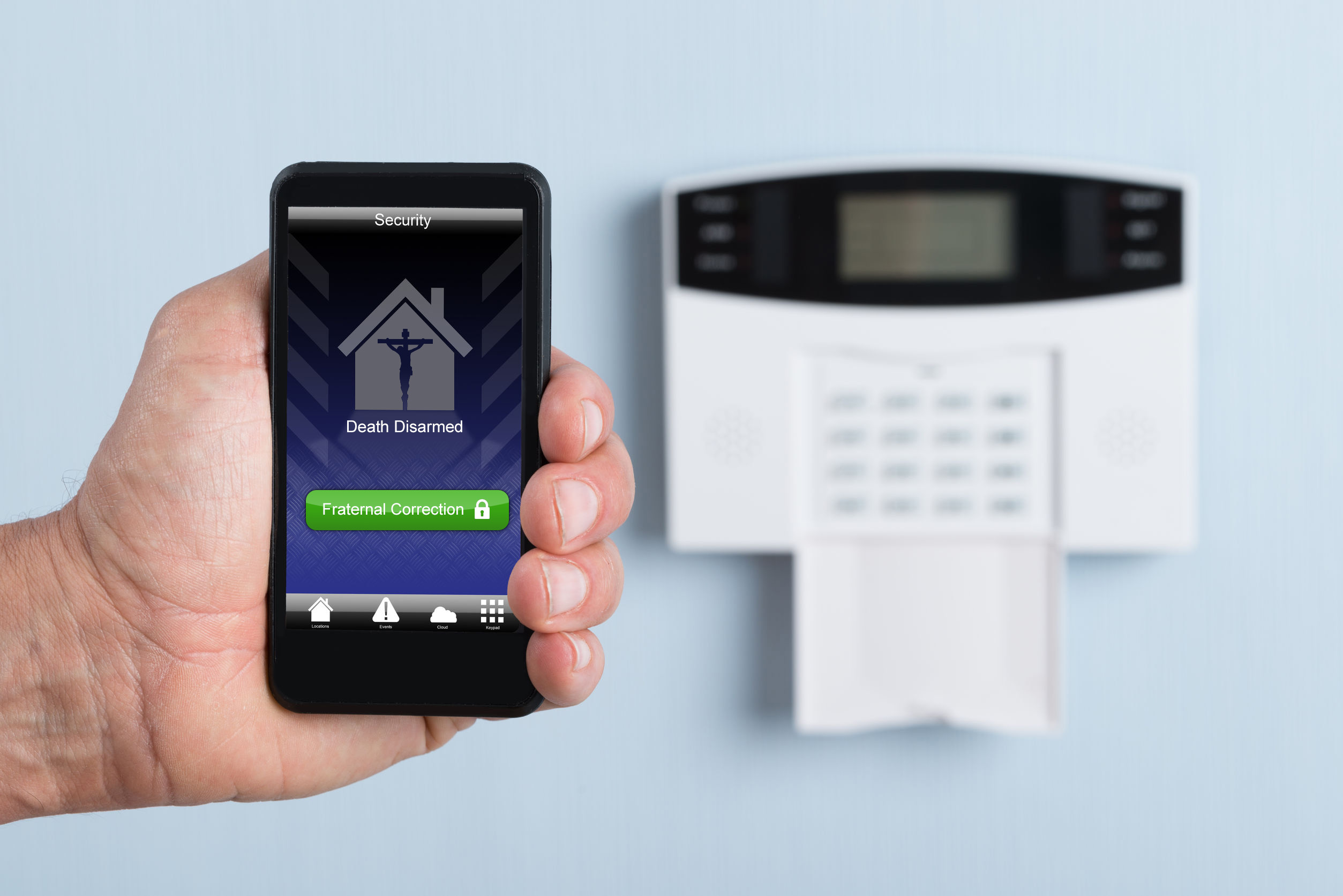My parents recently set off their house alarm by accident.
There was no intruder this time, and thankfully they were able to disarm the system before the cops and firetrucks descended on their house to apprehend the imaginary invader. But this image helps me make a very simple point:
We want security systems for a reason. We want our smoke-detectors to have fresh batteries for a reason. We want our credit card companies to have fraud detection for a reason. We don’t care if 99% of the time, we don’t need any of these things, or if we sometimes set them off by accident. We still want them there.
Why?
Because we want to be warned when something isn’t right. It’s in our best interest to know if there’s an intruder — or if something’s on fire — or if someone is on a spending spree in Hawaii with our MasterCard!
We see the obvious value in being warned about all those things — but what about the state of our souls?
In our first reading today, God appoints the prophet Ezekiel to do just that. He is the “watchman for the house of Israel,” which means that Ezekiel is sort of like Israel’s very own home security system. He is the alarm that’s supposed to go off when something isn’t right, namely: When Israel is wandering away from the God they should love above all else.
If he fails to sound the alarm, then Ezekiel is actually at fault: “If you do not speak out, the wicked shall die for his guilt, but I will hold you responsible for his death.”
If he does sound the alarm, and those inside the house choose to do nothing about it — then he’s done all he can do: “he shall die for his guilt, but you shall save yourself.”
We see the same principle at work in our Gospel today, where Jesus says point blank: “If a brother sins against you, go and tell him his fault,” first on a one-on-one basis, then with a few other witnesses, and then the wider Church community. If he listens, good. If not… then let him walk away!
We might hear this and wonder: What happened to “Judge not lest you be judged!” Why is Jesus now telling his disciples to point out one another’s faults?
But hold on! If you crack open your Bible and look at what immediately precedes the passage we heard today, you’ll find that beautiful and familiar story of the merciful shepherd who is willing to leave the 99 sheep to go in search of the one lost sheep.
THAT’s the interpretive lens we ought to bring to our passage today. Jesus is not telling us we have to condemn or criticize or nit-pick our neighbor until they’re perfect.
Rather — he’s telling us to have a compassionate heart, a heart that actively seeks out the straying sheep. Jesus knows better than anyone else that when we wander off from His flock — from His Church and her sacraments — we become vulnerable and defenseless. We become easy prey for the wolves. It’s the Church’s responsibility to be that watchman — to be that alarm system — that sounds the warning: You’re getting yourself lost! Come back! You belong here. We want you here!
The bottom line is this:
We are responsible for one another — not only to our friends and our family members who have been entrusted to us in more obvious ways. We are also responsible for ALL our fellow Christians, and more amazingly: everyone in the world.
Remember! Jesus also tells us: “You are the light of the world.” Light exposes and scatters darkness — even the darkness of sin: “If a brother sins against you, tell him.” Shine a light on that darkness! Help him to see his error so he has an opportunity to turn back to God!
Notice, Jesus does not say: “If someone is doing something wrong, nag them to death until they end up hating the Church.” Nor does Jesus say: “If anyone ever commits a sin, make them feel like they’re a terrible person that God couldn’t possibly love.”
No, not at all! We’re don’t have the right to condemn anyone! Our correction should always be done strategically and with the sincerest love.
Like the alarm systems in our houses, we only alert our neighbor to what’s going wrong for their own good and for the good of the entire Church!
Now at this point, you likely have someone specific in mind — someone who you sincerely love. A lost sheep, if you will.
What can you do for them? How can you help bring them back?
First — You need to take a deep breath and pray. Pray for the guidance of the Holy Spirit. Pray for the humility to confess your own faults and failings to the Lord. Pray for good opportunities to have honest conversations with this person. Pray for the graces you need to stay calm, gentle, and level-headed. Pray that God helps you listen — to understand where they’re coming from. Pray that God helps this person to hear what you have to say without feeling attacked.
Second — Do your homework! Understand why the Church teaches what She teaches on whatever subject there happens to be disagreement or conflict. The Church wants what’s best for us. She wants us to thrive. It’s up to us to have a firm grasp on why the teachings of the Church really are GOOD news…Not attacks or limitations on our personal freedom.
Third and finally: Let this person have space to make a free choice. There’s no use trying to nag someone into holiness. And why would we want to? God Himself never forces anyone to love Him. He wants joyful, free children on fire with love… not miserable robots who happen to follow rules.
We have to be ok with rejection, but we absolutely can’t be ok with our own indifference. By our silence, we’re basically saying: “It’s ok not to care about what matters most.” We might pretend we’re being quite merciful, but when it boils down to it: Mercy is the opposite of ignoring sin.
When Jesus was on the Cross, he didn’t ignore our sins. They were crucified there. He loves us that much. He cares about what sin does to us that much. He wants us to be holy that much.
Jesus is the perfect watchman. His view is from the Cross, where he prays for us sinners: “Father, forgive them. They know not what they do!”
His perch upon the Cross is not one of condemnation, but salvation. From that lofty watchtower, he says to each one of us: “I can see all your sins from up here — in fact, your sins have done this to Me. But I willingly bore all of them to free you and to give you life. I love you just as you are, but you can’t stay as you are. I want to help you grow and become holy like Me. Repent, turn away from your former ways! Believe and follow Me.”
That’s the love which fulfills the Law. That’s the love that gently corrects us, the love that draws us back when we stray, the love that takes away all the sins of the world.




